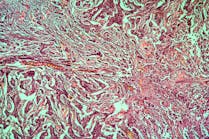CDC recommends a powerful new tool to protect infants from the leading cause of hospitalization
The Centers for Disease Control and Prevention (CDC) is recommending a new immunization starting this fall to help protect all infants under 8 months and some older babies at increased risk of severe illness caused by respiratory syncytial virus (RSV).
CDC director Mandy Cohen, MD, MPH, adopted the CDC Advisory Committee on Immunization Practices’ (ACIP) recommendation for the use of nirsevimab, trade name Beyfortus, a long-acting monoclonal antibody product, which has been shown to reduce the risk of both hospitalizations and healthcare visits for RSV in infants by about 80 percent.
CDC recommends one dose of nirsevimab for all infants younger than 8 months, born during – or entering – their first RSV season (typically fall through spring). For a small group of children between the ages of 8 and 19 months who are at increased risk of severe RSV disease, such as children who are severely immunocompromised, a dose is recommended in their second season.
Nirsevimab, which was approved last month by the U.S. Food and Drug Administration (FDA), is administered as an injection and provides infants and toddlers with antibodies to protect against severe RSV illness. It provides critical protection during a baby’s first RSV season, when they’re most at risk for severe illness.
Nirsevimab is expected to be available this fall. Expectant parents and parents of infants under the age of 8 months, as well as those with older babies, should talk with their healthcare providers and request this added layer of protection against RSV this season.
ACIP voted to include nirsevimab in the Vaccines for Children program, which provides recommended vaccines and immunizations at no cost to about half of the nation’s children. CDC is currently working to make nirsevimab available through the Vaccines for Children program. Additional clinical guidance and healthcare provider education material will be provided by CDC in the coming months.





